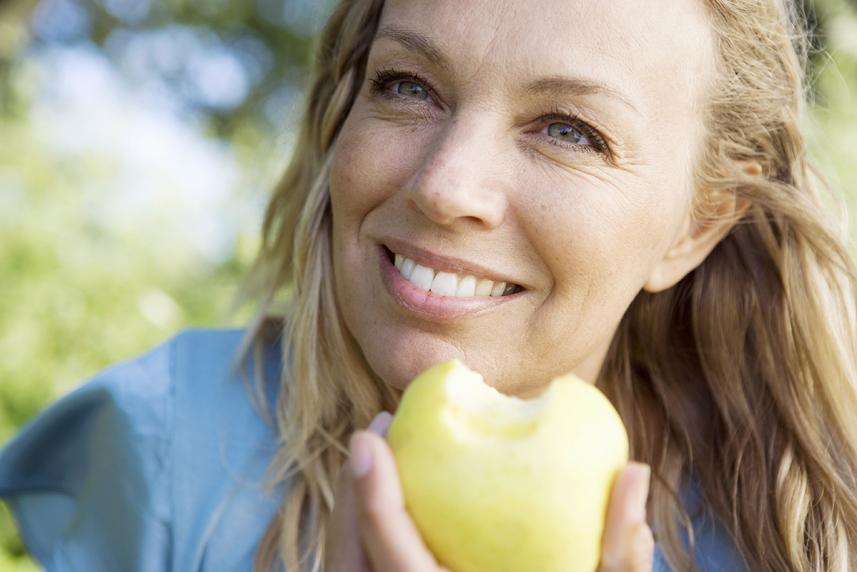
We carry a range of HSA- and FSA-eligible products, including over-the-counter medications, medical devices and more. And you can have it all delivered to your door.

Eating a nutritious diet can cut your risk for common vision disorders. Find out which healthy foods you should consider adding to your plate.
You get your vision checked regularly. And you wear sunglasses to protect your eyes on sunny days. Nice job: Those are smart ways to keep your eyesight healthy. But did you know that eating a well-balanced diet can also boost your vision, especially as you get older?
Certain eye disorders are common as you age, says the American Optometric Association. Macular degeneration causes you to lose your central vision. Cataracts are cloudy areas in the lens of the eye that cause vision problems. And dry eyes can cause redness and pain.
The good news: Certain foods contain nutrients called antioxidants that can cut your risk of eye problems. Learn which healthy bites you should add to your plate today.
Some eye conditions are linked to an imbalance between the antioxidants and free radicals in your body. Free radicals are substances that can attack healthy cells. Antioxidants can protect your cells from damage. They do that by neutralizing free radicals.
Fruits and vegetables are loaded with antioxidants such as vitamin C, vitamin E and beta-carotene. Some fish, nuts and seeds are also rich in antioxidants. You may be able to delay or even prevent common eye disorders by eating a variety of foods that contain those essential nutrients, says Stephanie Di Figlia-Peck. She’s a registered dietitian at Cohen Children’s Medical Center in New Hyde Park, New York.
So what are some antioxidants for keeping your eyes in great shape?
Vitamin E. “This antioxidant helps protect your cells — including your eye cells— from damage by free radicals,” says Kristian Morey. She is a clinical dietitian at Mercy Medical Center in Baltimore, Maryland. Good food sources include:
Thinking about taking a vitamin E supplement instead? There’s not enough proof that these supplements have the same effect as nutrients from your meals. That’s according to the National Institutes of Health. Only take supplements if your doctor recommends them.
Vitamin C. Like vitamin E, this is a powerful antioxidant that may lower your risk of eye problems. Fruits and vegetables are great sources of vitamin C. Some great options include:
Lutein and zeaxanthin. These eye-friendly nutrients play a role in preventing macular degeneration caused by aging. “Lutein and zeaxanthin may also lower the risk of cataract development,” says Di Figlia-Peck.
To get a healthy dose of these nutrients, eat plenty of:
Find laboratory-tested supplements at the Optum Store and have them delivered right to your door.
Omega-3 fatty acids. Fatty fish such as salmon are great food sources of omega-3s. Some plant-based foods have them, too.
Research has shown that eating omega-3-rich fish may lower women’s risk of macular degeneration. Adding omega-3 fatty acids to your diet may also give you relief from dry eyes. Good food choices include:
You can also get omega-3s from supplements. Just be sure to ask your eye doctor if a supplement is right for you.
Beta-carotene. This compound becomes vitamin A once it’s in your body. “This vitamin is important for vision — especially night vision or vision in dim light,” Di Figlia-Peck says. Some studies have also shown that high amounts of vitamin A are linked to a lower risk of age-related macular degeneration.
Not having enough vitamin A in your body may lead to serious health conditions and even blindness. Beta-carotene can be found in deep orange and green foods such as:
Riboflavin. This B vitamin may protect against free radicals in your eyes. Diets high in riboflavin have also been shown to lower your risk of developing cataracts. Good food sources of riboflavin include:
Zinc. This mineral plays an important role in bringing vitamin A from your liver to your retinas. Once in your eyes, zinc will help make melanin, a protective pigment. It also helps you see better in the dark. Good sources of zinc include:
(P.S. Zinc is also a great mineral for hair and nail health. Get the details here.)
The takeaway: Eating antioxidant-rich foods is good for your eyes (and your overall health). Aim to fill your plate with nutritious foods at every meal. And be sure to check with your eye doctor before you take any supplements.

We carry a range of HSA- and FSA-eligible products, including over-the-counter medications, medical devices and more. And you can have it all delivered to your door.
Additional sources
Vision disorders: American Optometric Association (n.d.). “Diet and Nutrition”
Vitamin E supplements: National Institutes of Health (2021). “Vitamin E”
Fish and macular degeneration: American Academy of Ophthalmology (2020). “Diet and Nutrition”